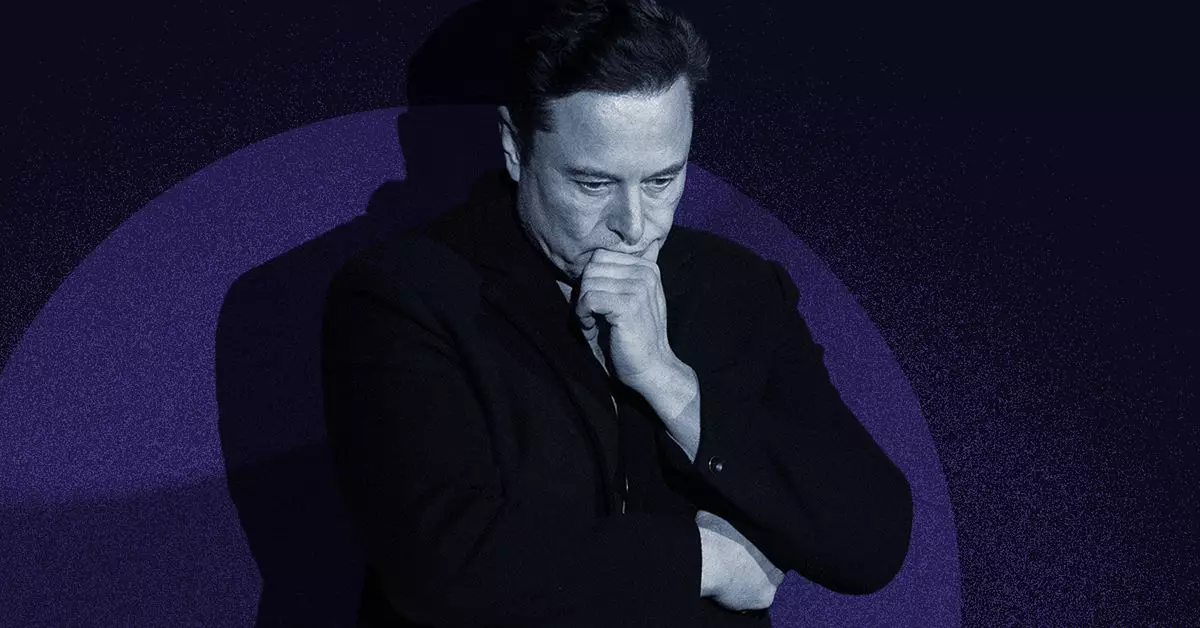In today’s digital age, the lines between personal opinion and public discourse are increasingly blurred, particularly on social media platforms. This phenomenon is exemplified by Elon Musk, the high-profile entrepreneur who has recently embarked on a mission to challenge government structures through his newly styled advisory entity, the Department of Government Efficiency (DOGE). Musk, a figure of considerable influence, has found a platform to voice his critiques and rally public sentiment against perceived government inefficiencies. However, this impact raises significant questions about accountability in his approach and the repercussions on individuals targeted by this strategy.
One of the most striking instances of Musk’s approach came to light when he singled out Ashley Thomas, a director at the U.S. International Development Finance Corporation, regarding her role in Climate Diversification. With a mere retweet and provocative comment about “fake jobs,” Musk’s actions sparked a wave of public scrutiny that skyrocketed Ms. Thomas into the spotlight. This public posturing was not merely a criticism but an actionable directive that led to harassment and extreme backlash from Musk’s followers, amplifying the scrutiny on individuals in government roles. This incident encapsulates how influential figures wield their platforms — leveraging their reach to attack rather than engage in constructive dialogue.
The response to such public shaming is alarmingly predictable. The online discourse often devolves into harassment, where targeted individuals, like Thomas, face a deluge of negative attention. The American Federation of Government Employees categorically condemned Musk’s conduct as fostering an environment of fear among federal employees. This reflects a broader concern regarding how social media can be weaponized; it transforms individual critique into collective harassment, leaving victims to navigate both professional and personal fallout alone. Such an atmosphere discourages qualified individuals from serving in government roles, as the threat of public vilification looms large.
Musk’s strategies, characterized by high visibility and aggression, serve to highlight a disturbing trend in public discourse — the shift from constructive criticism to destructive attacks. While advocates may argue that this is a manifestation of “free speech,” the consequences reveal a darker reality: a climate that stifles open discussion and turns professional responsibilities into personal vendettas. By promoting such targeted attacks under the guise of public interest, Musk trivializes the complexities faced by government employees who are striving to enact significant change from within.
As public figures like Musk continue to leverage their platforms for personal gain or to push specific narratives, society must grapple with the ethical implications of such actions. The conversation around government efficiency and accountability is an important one, but it must be approached with nuance and responsibility. Recognizing the humanity behind governmental roles is vital, and it’s essential to cultivate a discourse that encourages accountability without tipping into harassment and fear-mongering.
While the potential for social media to impact public opinion is immense, it necessitates a foundational commitment to ethical engagement, respectful discourse, and the recognition of the broader consequences that arise from targeted criticisms. As we navigate this evolving landscape, safeguarding individual dignity should remain paramount.


Leave a Reply